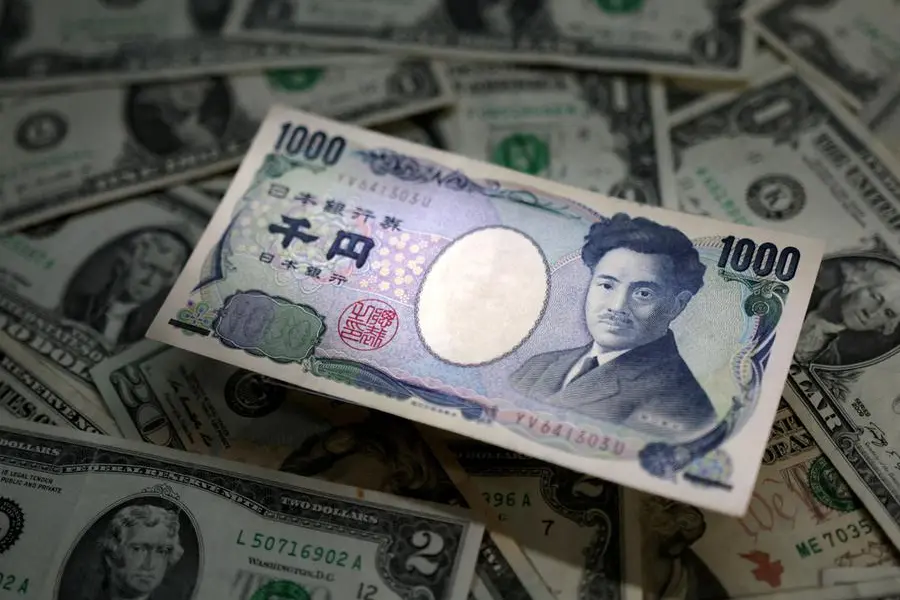PHOTO
The yen weakened and Tokyo stocks rose Tuesday after the Bank of Japan hiked interest rates for the first time in 17 years as it shifted away from its long-running ultra-loose monetary policy.
With inflation consistently holding above officials' two percent target and recent wage talks ending with bumper rises, the BoJ finally felt confident to pivot from a policy that has been an outlier in the global economy as other countries ramped up borrowing costs.
Officials "assessed the virtuous cycle between wages and prices, and judged it came in sight that the price stability target of two percent would be achieved in a sustainable and stable manner", it said.
The hike -- from -0.1 percent to between zero and 0.1 percent -- was the first since 2007 and ends a policy put in place in 2016.
The move comes as several major central banks this week hold gatherings that will decide on interest rates, including the United States, United Kingdom and Australia.
The BoJ also said it would scrap its programme of allowing government bond yields to move within a tight range -- known as yield curve control -- and stop buying risk assets such as exchange-traded funds and real estate investment trusts.
While the moves were a major change from a long-running policy, Japanese stocks rose as the BoJ's comment that conditions would remain accommodative tempered fears of more hikes.
The yen weakened to more than 150 per dollar as traders continued to fret over the state of the Japanese economy and the impact a hike could have. Fading expectations for US rate cuts this year added to the greenback's strength.
"As the Bank of Japan made significant policy changes, crossing what can be seen as a Rubicon in its monetary approach, the moves had been extensively communicated to the market beforehand," said SPI Asset Management's Stephen Innes.
"Consequently, the adjustments were largely anticipated, and the markets had priced them in almost perfectly."
Tom Kenny at ANZ added, "we think the BoJ will need a lot more convincing that inflation is truly on the path to sustained two-percent inflation before hiking again."
Still, there is a concern that tighter Japanese policy could disrupt financial markets as investors switch their cash to Japan in search of better returns as other central banks prepare to begin cutting.
Other markets were mixed.
There were gains in Sydney, Singapore, Jakarta, Bangkok and Wellington.
Hong Kong and Shanghai fell, while Seoul, Mumbai, Taipei and Manila registered losses.
London and Paris were both flat while Frankfurt edged down.
Investors are also gearing up for the Federal Reserve's latest policy decision Wednesday.
While it is forecast to keep rates on hold at a two-decade high, it will release its "dot plot" outlook for the rest of the year, with the December report pointing to three cuts.
But with recent data suggesting inflation remains sticky -- including consumer and wholesale prices last week -- the economy in rude health and the labour market still strong, there is talk that the new guidance could point to just two.
Investors have consistently revised their view lower over recent months, with June pencilled in as the first likely move.
- Key figures around 0810 GMT -
- Dollar/yen: UP at 150.35 yen from 149.16 yen on Monday
- Euro/dollar: DOWN at $1.0850 from $1.0873
- Pound/dollar: DOWN at $1.2697 from $1.2727
- Euro/pound: UP at 85.48 pence from 85.42 pence
- Tokyo - Nikkei 225: UP 0.7 percent at 40,003.60 (close)
- Hong Kong - Hang Seng Index: DOWN 1.2 percent at 16,529.48 (close)
- Shanghai - Composite: DOWN 0.7 percent at 3,062.76 (close)
- London - FTSE 100: FLAT at 7,725.18
- West Texas Intermediate: DOWN 0.3 percent at $81.94 per barrel
- Brent North Sea Crude: DOWN 0.3 percent at $86.64 per barrel
- New York - Dow: UP 0.2 percent at 38,790.43 (close)




















